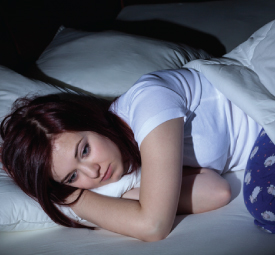Here’s the thing… anything you do can turn into a “habit”. Your mind loves routine. Like a needle on a vinyl record (please explain to the teenagers in your life), your mind loves to stay in the same groove that it has worn into your life for as long as you will allow it to do so. Your mind will use any rationalization or excuse it can latch onto to avoid change.
All through high school kids may have said, “sure, it’s true that my marks aren’t where they should be …but, hey, I’m doing what I love and slow and steady wins the race…eventually I will get there. I will start tomorrow.”
“It’s true that I’m too busy to set goals, make schedules, plan my days, eat better, exercise, and sleep better…the main activities that will allow you to do better…but, hey, I do what I do to get by and I’ll eventually make time for those things tomorrow.”
“It’s true that I’m possibly sabotaging my future success by staying up late to play video games or to talk to my friends online, but I am willing to take that chance so that I can enjoy today (the best times of my life) …when I go to college, as I get older or when I start working, then I will do all those things …tomorrow”.
Tomorrow. Tomorrow. Tomorrow. Tomorrow is a lie. And tomorrow is the under achiever’s best friend.
Slow and steady only works for fairy tales – the tortoise and the hare. Working hard without proper rest and working smart is lethal to your long term goals and dreams. Are you really being the best that you can be and getting the most out of every day? Or are you fooling yourself into thinking that because you are exhausted by early evening – because you didn’t sleep right – that you must be working hard.
And then what do you do? Well the needle goes back into the groove and the beat goes on and on and on…you snooze on the couch from 5 to 7 pm, to feel better. You do this without realizing or caring that this will mess up your sleep routine. By 10 pm you will be wide awake and texting around to see who else is a night owl, just like you.
Many studies prove this to be true
According to several previous studies, researchers have repeatedly reported that sleep deprivation, amongst teens, can negatively affect physical and mental health. These studies have found that people who slept fewer hours experienced more fatigue, cognitive impairment and a lack of concentration the following morning in comparison to people who slept better and more.
Now, in a new study conducted by researchers from the University of California, Berkeley, the findings reveal that teenagers who slept less than other teenagers have more academic and emotional issues.
“This very important study adds to the already clear evidence that youth who are night owls are at greater risk for adverse outcomes,” said UC Berkeley psychologist Allison Harvey, senior author of the paper reported by Medical Xpress.” Helping teens to understand the benefits of good sleep habits is an important to their success as teaching them how to take good notes.
However, most parents know that this is not an easy process; especially when they have developed bad habits in the summer and teenagers don’t fully understand the need to change for the better. At Berkeley, sleep coaches draw from the science of motivation, habit formation and sleep to help teens achieve earlier bedtimes.
The research team looked at data from a national study conducted in the United States that studied “Adolescent Health Issues”. The study monitored and followed adolescents, from 1994, to see what factors influenced their behaviours. The team specifically analyzed information on 2,700 adolescents between the ages of 13 and 18.
The researchers examined three time periods, which were the onset of puberty, one year after puberty and young adulthood. Of the 2,700 adolescents, 30 percent of them reported sleeping later than 11:30 pm on school days. During the summer time, these children stated that they slept later than 1:30am. The researchers found that by the time the children graduated from high school, the children who slept later had lower grade point averages (G.P.A.) and more emotional problems. The team found that sleeping later during the summertime when school is not in session did not affect children’s academics but did increase children’s vulnerability in developing emotional problems.
“Academic pressures, busy after-school schedules, and the desire to finally have free time at the end of the day to connect with friends on the phone or online make this problem even more challenging,” said Lauren Asarnow, lead author of the study and a graduate student in UC Berkeley’s Golden Bear Sleep and Mood Research Clinic. “The good news is that sleep behavior is highly modifiable with the right support.”
The research team stressed the importance of getting young children and teenagers to sleep earlier and stick to their sleeping schedules. The study was published in the Journal of Adolescent Health.
Final Word
Based on the study, only 30 percent of teens are not going to bed on time. That means the majority are doing the right thing. Parents should not assume that all teenagers are staying up late and sleeping poorly. Similarly, teenagers should not think that all their friends are up late. The smart ones are sleeping. The high achievers are in bed, getting their rest because they want to put their best foot forward – tomorrow.
Sincerely,
FOAMITE INDUSTRIES INC.
R.C. (Bob) Dimas
Be the best that you can be by doing whatever is necessary to improve the quality of your sleep!





